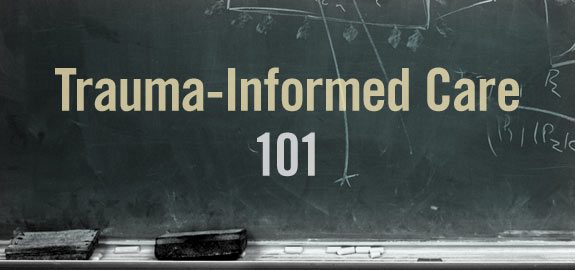The Role of Trauma in Human Trafficking

Whether one is a labor trafficking victim; a domestic or international sex trafficking victim or survivor; or any other victim of trafficking, one is subject to the effects of trauma. Trauma exposure occurs along a continuum of complexity, from the less complex single, adult-onset incident where all else is stable in a person’s life to the repeated and intrusive complex trauma frequently of an interpersonal nature, often involving a significant amount of stigma or shame and where an individual may be more vulnerable to its effects. It is on this far end of the continuum where victims of human trafficking, especially sex trafficking can be placed. For these victims, this complex trauma occurs repeatedly and cumulatively, usually over a period of time and often includes catastrophic, deleterious and entrapping trauma that can be persistent and devastating. The work of Bessel van der Kolk and others have shown the dramatic effects that trauma has on the body. This includes the effect on the ability to self regulate, both psychologically and somatically. This in turn interferes with perception, cognition, affect tolerance, basic bodily functions such as digestion and respiration, among others. Additionally, the emotional effects of trafficking trauma may include anxiety, panic disorder, post-traumatic stress disorder, major depression, and/or substance abuse.
Much of the current literature on trauma and trafficking focuses on international trafficking for commercial sexual exploitation (CSE) where victims often experience multiple layers of trauma. Domestically, citing just one of the routes through which individuals become exploited and imprisoned in a desperate cycle of trauma and disempowerment, it is being found that at least half of the victims of CSE on the streets today were trafficked from the foster care system. And, of course, these young people most probably experienced some trauma in their young lives before becoming a part of the social welfare system or entering a foster home. Janina Fisher writes that adult survivors of trauma become very adept at compensatory, trauma-related impulsive behavior, such as self-injury, addictive behaviors and dissociative symptoms.
How these individuals are responded to once leaving a life of exploitation is key to their future health and survival. Many survivors have a strong mistrust of others, and this makes the work of those attempting to help more difficult. A trauma-informed approach is the broader term used to include a systemic way of responding to victims of trafficking. A trauma-informed approach includes all of the systems involved in the lives of the victims, including judicial, law enforcement, health care, education, family etc. All members of these responding communities need to be trained in the signs and symptoms of trauma, and in the essential elements of serving trafficking victims and survivors.
This includes, first and foremost, safety. Survivors have not been safe, and need every aspect of their recovery to include the need for safety and promoting a sense of safety. Trust needs to be built slowly with survivors, as they may not have been able to trust the people around them, or the situation in which they found themselves. This includes strategies to ensure that survivors are not retraumatized while in recovery. Empowerment, choice and inclusiveness are also strong components of a trauma-informed approach. Survivors need to be an integral part of their treatment planning with their culture, gender, and personal history always in mind. For all who are a part of the restorative community for trafficking victims and survivors, it is important to understand the trauma-informed approach as a continual learning process, individualized to each and every deserving survivor.
Evelyn. P. Boyer, Ph.D is a psychologist in private practice in Bethesda, MD. She has a certificate in psychoanalytic psychotherapy and has over a decade of extensive study of trauma treatment therapies.
